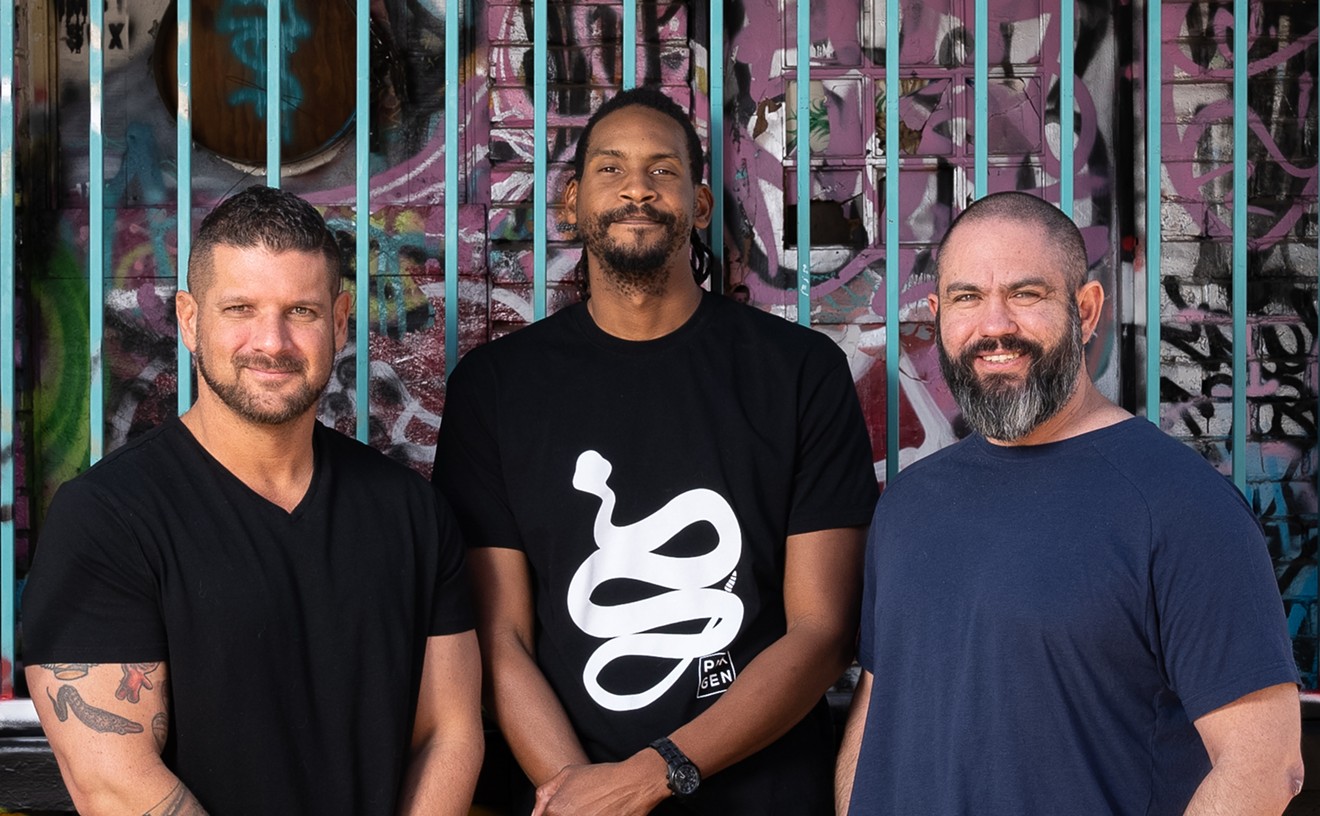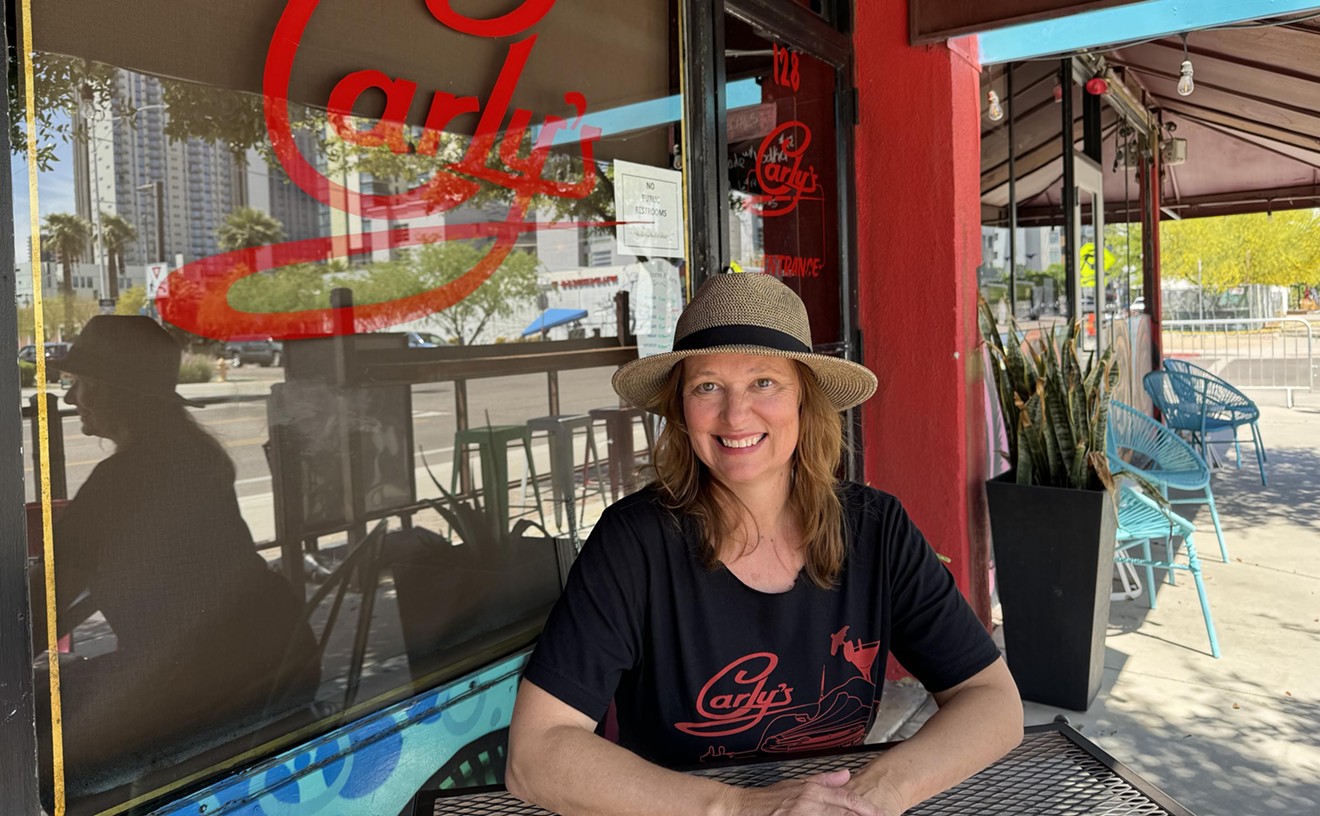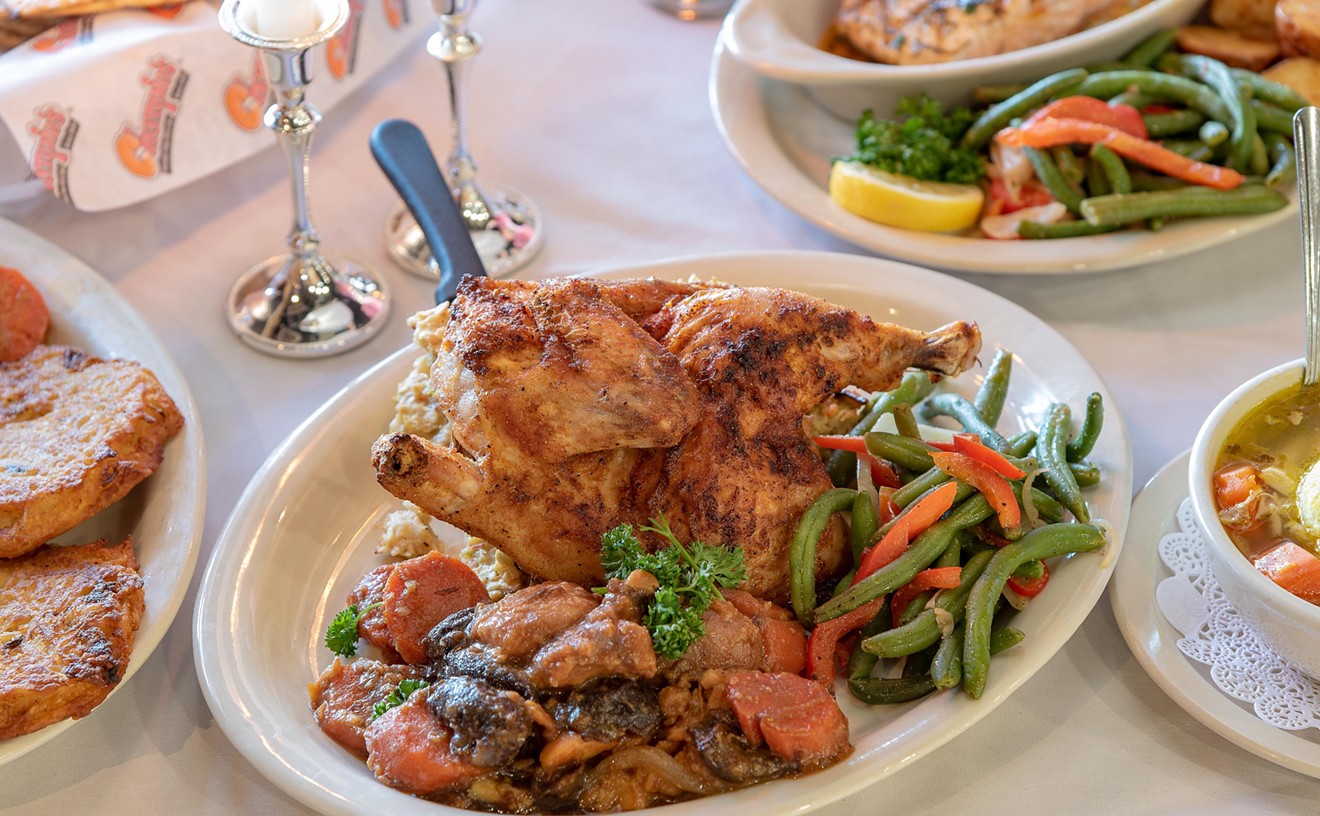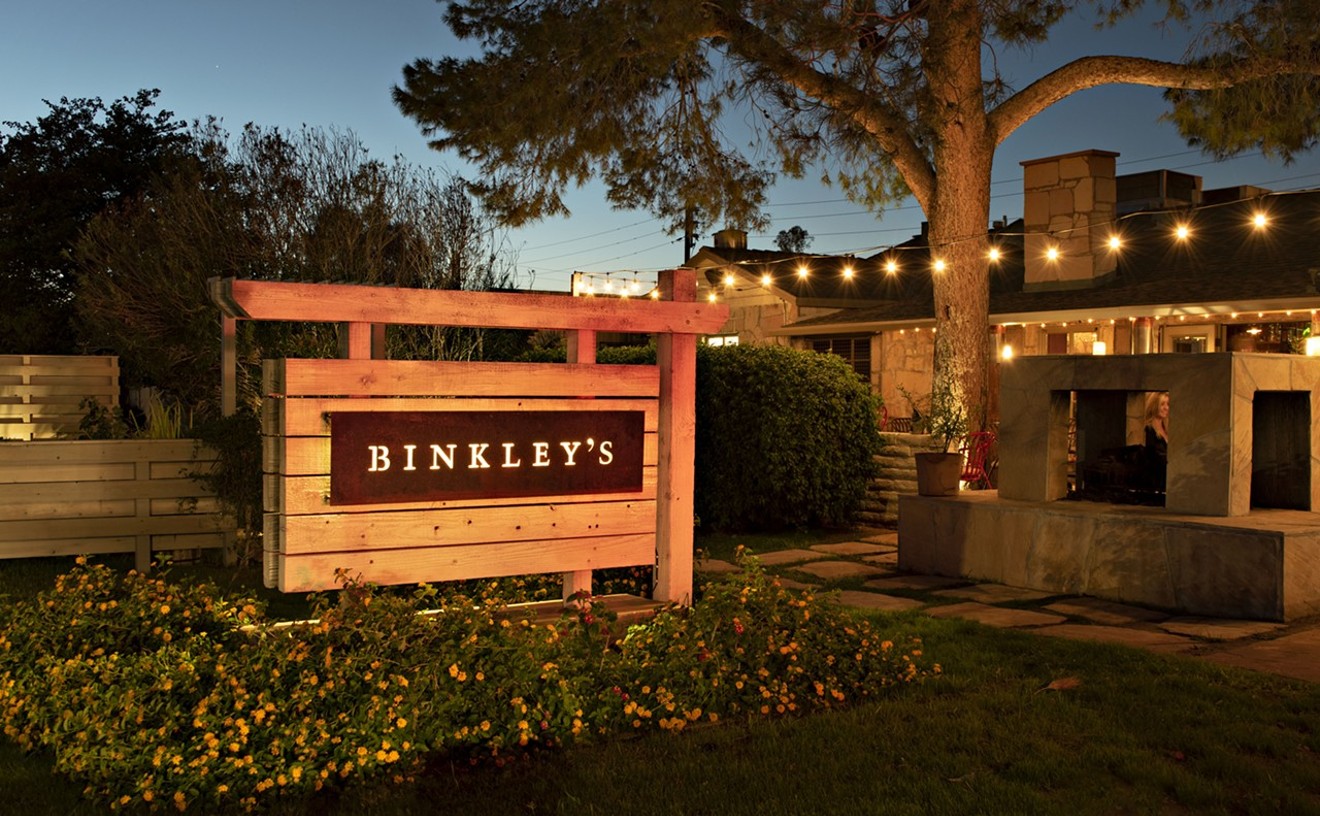The most surprising thing about the signature Uzbek dish palov isn't that it's more satisfying and filling than it appears — its rich, oily, and cumin-tinged bites of rice, onions, sliced carrots, and pieces of tender lamb as worthy of comfort-food status as any American casserole. No, the most surprising thing about palov is that in its native Uzbekistan, this rice dish is eaten with the hands and — if you are a guest — offered to you from the palm of your host.
"But we are a restaurant," says Olimjon Samidinov, nearly apologizing, "so we have to serve it with silverware."
The restaurant is Golden Valley, an inexpensive, casual place serving Uzbek and Mediterranean cuisine in North Phoenix. The effort of three former natives of the Central Asian country, the restaurant, which opened in 2011, gets its name from their hometown of Fergana Valley, or the Golden Valley, also known as the "food basket of Uzbekistan."
"Most Americans don't know anything about Uzbekistan, except what they heard from Borat," says Samidinov, who works the front of the house. "We serve authentic Uzbek food, but most people don't know what that is. We added the Mediterranean to get the customers."
True, the Mediterranean cuisine offered at Golden Valley may be a way to encourage newcomers seeking more familiar global fare to pop in for a visit, but much of it is acceptable, at best, and there are dozens of other places in the Valley that do it better. A far more enjoyable dining journey is experiencing the distinctive flavors of a country most of us probably will never visit, let alone spell correctly. The kind of food my sister-in-law, who lived and worked in Uzbekistan for a year, describes as "recognizable yet completely foreign — a little fatty, a little greasy, but delicious."
With more than 30 years of experience, most of it owning and operating restaurants in the Fergana Valley, chef Showkat Toshpolatov has put together a menu of traditional foods of his homeland — soups, dumplings, breads, and kebabs. With the exception of an item in the back of the menu (more on that later), most of what you'll want to order means never needing to look beyond the first two pages. And, save for the soups, dishes in Uzbekistan are typically shared; making their under $10 price points a filling and affordable group dining adventure.
Given the good deal of grain farming in the country and the fact that the restaurant makes all its breads (save for the pitas) from scratch, you could start with one of three tasty and dough-y creations. Toshpolatov essentially fills each of them with the same ingredients — a tantalizing mixture of ground beef, onions, herbs, and cumin — but what makes each different is the matter in which it is prepared.
On my visits, the restaurant did not have blinchiks — a Russian fried-dough staple — on hand. But there was samsa, four stuffed, plump triangles of golden baked dough topped with toasted cumin seeds. Nearly meals in themselves, they are the equivalent of a savory pastry. As equally stellar as palov is the popular Uzbek dish manti. These soft, filled dumplings — each the size of a coin purse, sprinkled with dill, and featuring a hole in the top so steam can pass through — are wonderfully rich and filling. No wonder many of the country's regions serve manti at the end of a meal, as if it were a well-earned treat.
Filled dumplings get smaller, though no less enjoyable to eat, in chuchvara, Uzbekistan's version of the pierogi and the most widespread dish in the country. Traditionally served alone, Golden Valley's version packs nearly a dozen of the housemade beef-stuffed dough packets into a hearty soup brimming with lamb and vegetables. Think you can make it through a typical minus-nine-degree Uzbekistan winter? You will after this eating dish.
Other soups, like most Uzbek foods, are lightly seasoned and have a gentle taste and aroma while retaining their hearty foundations. A large, fatty piece of bone-on lamb is the chief resident in shurva, a simple soup with a delicate, meaty broth, carrots, onions, and turnips. And for noodle lovers, there is lagman, a tangle of fat and heavy housemade egg noodles that sit with pieces of lamb in a broth made vibrant by a variety of vegetables and a sprinkling of dill. The soups are best enjoyed with an order of traditional Uzbek bread. Baked in-house, the thick, circular loaf (the size of a dinner plate with a depression at the center) arrives cut into soft, pillowy chunks, perfect for sopping.
Taking a break from the Uzbeks' meaty and doughy dishes is the cool and fresh Uzbek salad. Chef Toshpolatov adds cucumber and dill to this variation of pomidor va piyozlik salat (tomato and onion salad). Although there already are a lot of sliced tomatoes in the dish, Samidinov tells me his family would add even more, enough so that the juice at the bottom could be eaten with a spoon.
When it comes to kebabs, there are several to choose from. The skewered meats are well prepared but lack the seasoning that would elevate them from good to great. The lamb — available in chunks, ground, or as several small chops — is the most flavorful and tender. It fares better than unremarkable beef, chicken, and fish, which on my visit arrived as salmon instead of the mahi-mahi stated on the menu.
After dinner, there are a few rotating desserts to choose from in the restaurant's refrigerated case. The gummy baklava, if displayed, should be skipped. And Russian cakes, although light and moist, are forgettable and hardly seem necessary after a filling Uzbek meal.
If it weren't for its bright, fluorescent lights and deli case counter, Golden Valley might seem like the setting for a celebration in the dining room of an Uzbek home. And indeed, for the restaurant's primary customer base of Bukharan Jews and Muslim Uzbeks, family events and special occasions often are held at the restaurant.
There is a single TV that plays Uzbek music videos, and décor touches — shimmering rose curtains, scalloped white tablecloths, and gleaming silver trays that hold condiments as well as a single pack of chewing gum — seem to express a strong tradition of homespun hospitality.
It is Uzbekistan remembered, but for the men who operate the restaurant, a tribute to a country they can never return to.
Samidinov, Toshpolatov, and owner Khayroollo Polatov are political refugees who, along with several others, were brought to Phoenix by the United Nations after spending a year in a refugee camp following Uzbekistan's 2005 Andijan massacre.
Many have not seen their families since that day. And although, Samidinov was reunited with his wife and children, who fled the country and came to Phoenix in 2009, he expresses sadness for those less fortunate. For Samidinov, Golden Valley provides a setting of food and place to bring the surrounding Uzbek community (which he says numbers around 200) together. It's a support system he's most thankful for.
"In a way," he says, "We're all connected."










